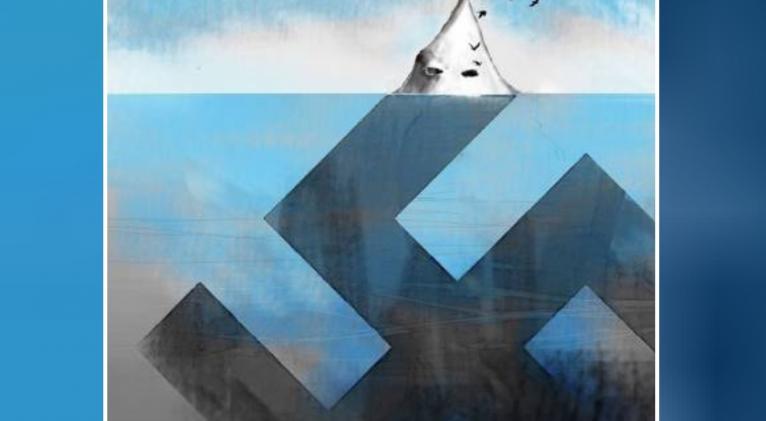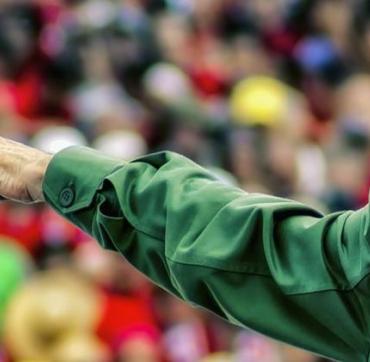Humor to Understand (and Change) the World
especiales

Iceberg, the work of the Belgian Luc Descheemaeker that won the Grand Prize of the jury of the First Biennial of Political Humor of Havana, could effectively summarize the essential approaches of a substantial essay on the true affiliations of many groups of the current extreme right.
Above the sea line, the mountain that reminds the hoods of some racist and xenophobic rituals... in the depths, the huge swastika cross, symbol of fascist ideology.
Disguised as extreme nationalists, some formations of the most rancid right barely manage to conceal their neo-fascist calling.
The humorist has achieved an ingenious and forceful image: the clarity of the metaphor is based on a universally shared concept, validated by science: the iceberg shows a very small part of its nature. Those naiive can become victims of appearances.
That’s what political humor does, in any of its fields and supports: it clarifies and purifies notions about issues that may be harsh, but that affect the entire social fabric.
In short, we are all political subjects. Because being apolitical is also a political position.
Caricaturists and cartoonists who deal with pressing issues, which impact the daily patterns of life in society, contribute to understanding the world... and also to (trying to) change it.
The first edition of the Biennial that began last Friday in Havana, and will last until June 28, brings together 42 cartoonists from 22 countries: Mexico, Brazil, Italy, Sri Lanka, Colombia, Russia, China, Germany, Belgium, Uzbekistan, Turkey, Ukraine, Iran, Syria, India, Estonia, Sweden, Lithuania, Cyprus, Serbia, Greece, and Cuba.
The backbone of the exhibition is the fight against expressions of neofascism. The jury (made up of Arturo Kemchs, from Mexico; Yahíma Rodríguez, specialist at the National Museum of Fine Arts; Iván Lira, from Venezuela; Lázaro Miranda Ramírez and Arístides Hernández Guerrero) has highlighted the plurality and originality of the pieces.
At the opening of the meeting, Vice Minister of Culture Lizette Martínez Luzardo stated:
«In a world in need of peace and where the rise of the extreme right and neo-fascism is worrying, it’s necessary to talk about love, solidarity and social justice.
«The speeches of hatred, denial, and the rewriting of history aim to be naturalized as truths of our people. Faced with this reality, art mobilizes awareness and also becomes a platform for denunciation.
«Palestine lives the pain of living under bombs, the native peoples of America have suffered for centuries from the looting and dismantling of their cultures, and it’s impossible to forget the crimes of the dictatorship in Argentina and other South American countries. With only three examples in different contexts, the reality becomes obvious: they try to wipe the meaning of the history of resistance and struggle of the people.
That's the whole idea: consolidating lines of progressive thought. All without making concessions to crude propaganda or vulgar didacticism. Art first. Art always.
The Biennial honors the tradition of humorous graphics in Cuba, which has many great figures in more than a century of history. But we also reflect on the challenges of that exercise. The view has to transcend international politics; within borders there are also suggestive and necessary themes.
Translated by Amilkal Labañino / CubaSí Translation Staff














Add new comment